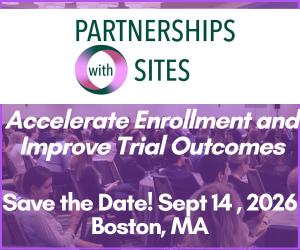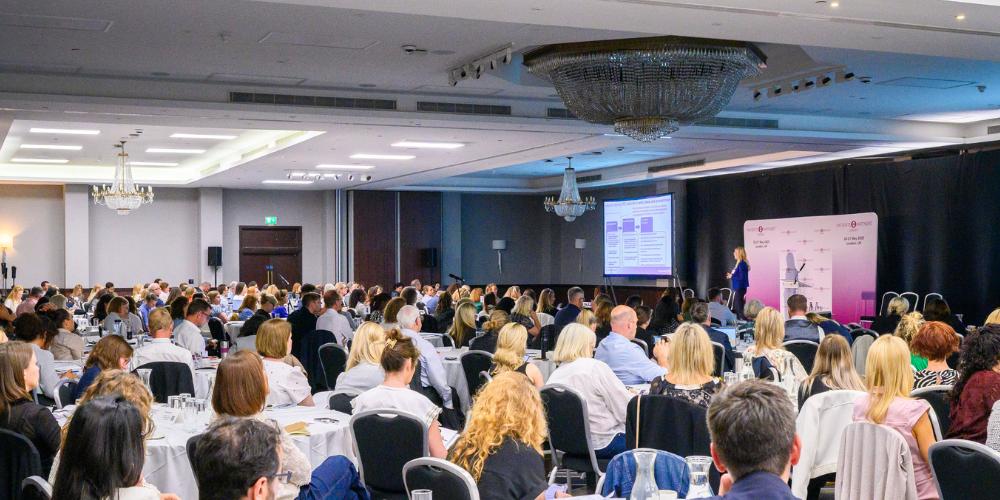Instilling a Broader Patient-Focused Mentality with Alexion’s VP of Global Patient Experience
Wendy Erler is the VP, Global Head, Patient Experience, STAR, and Advocacy at AstraZeneca in Alexion’s Rare Disease, where she is responsible for leading the enterprise innovation model to gather and incorporate patient insights throughout the drug development and commercialization processes.

How do you ensure the capturing of patient insights are used to inform decisions?
We centralized patient, caregiver, and advocacy engagement so that our patient communities have a single point of contact when working with Alexion. This helps us manage all the complexity of working with an organization so that how we show up is cohesive and straightforward. That also enables us to streamline all the outreach we want to do as an organization, and make sure it's appropriate and that we're meeting patients, caregivers and advocacy groups and where they are. We don’t want to show up in a transactional way; we want to deliver on this commitment of long-term partnership.
Can you give us an example of a personal insight?
I talked to a family once, who had gone through 12 clinical trials. And the mom, who was the caregiver, said, “It’s not just the trial visit day that throws us for a loop. It's the three days leading up to the trial visit. And then the three days after, when we get home trying to get back into our routine.” That makes us think about what we can do to make that easier for patients. How can we make the whole experience more tolerable and less burdensome?
The patient-championing mentality needs to be across the board
How have insights from patients changed the direction of an endpoint?
I was working with a group of non-ambulatory teenagers. They are confined to wheelchairs. We were talking about an app we wanted to develop and how it would measure their movements, etc. This group of kids looked at us and said, “We don't care if we ever walk again. That's not what we're striving for.” It was shocking to hear, but that's not what mattered to them. They wanted to make sure they could brush their own teeth, hold a spoon, and play a video game.
When we learned that that was their goal, versus what sounds like a cool ambition but is probably not possible, it became a very different conversation. We aligned our work towards what mattered to patients.
What lessons have you learned in the process of formally embedding more patient centricity into the organization?
That it’s less about where the function sits and much more about both the work you’re allowed to do and the tone at the top of the company. Alexion has a leadership team who are 100% committed to leveling up and amplifying patient centricity. There is a very concerted effort to do this. I came in to build the strategy in the organization to deliver on that ambition. We have a lot of work to do, but the magic of what we do is that there will always be the need for the patient voice.
What we intentionally set about doing was building methodologies, a framework and a governance to get the work done. In my presentation at the upcoming conference, I’ll speak about how we’ve put that structure and framework into place so that patient centricity isn’t just words on a wall, but drives how we work and act in decision-making.
What lessons have you learned from working in rare disease patient engagement?
That it is a people business, whether it's breast cancer or an ultra-rare disease that nobody's heard of. Everybody with a diagnosis is on their own unique journey. So as much as we can extrapolate bigger population data from a 5000-person clinical trial, they are still people. In my entire career, I've never met somebody who got a devastating diagnosis that can't tell you the date, time and location of when they got that diagnosis. It's a life-altering event.
I’d also like to see reaching a point where we can learn from one disease and apply that knowledge to another, without compromising the rigor of science. There are ways that we can take this wealth of natural history data to do so.
You said that this is an evolving process. What ideal are you keeping in mind to strive towards?
That there is a championing mentality embedded across the organization. When I walk into a room, there is this collective, “Oh, Wendy’s here; let’s talk about the patient.” That only works if I can be in every single meeting every single day. I once walked into a toxicology meeting, and the team was talking about when they were going to draw blood from the mice being used. I asked a naive question, “What does that mean for the therapy we’re developing?” And everyone stopped. Because that made them think about, from the patient side, what it would end up being. What if they drew blood on Day 7, instead of 3, etc. It was just an experience that showed the power of having someone in the room who engages with patients, and who knows that they are frustrated with the frequency of dosing or drawing blood too often.
The patient-championing mentality needs to be across the board. I love when it’s the finance person on the team saying, “Does this make sense for patients?” or the quality control manager saying, “Should we be asking patients to do this?” because it shows that we are embedding it as a way of thinking and working, beyond just one function.
What lessons learned would you share from your experience?
Think about what the mindset “No decision about a patient, without a patient” looks like. Do you have the organizational capability to engage? Do you have that team in place? It may be a patient advocacy team sitting in corporate affairs; it may be someone focused on patient advocacy groups as a key stakeholder.










